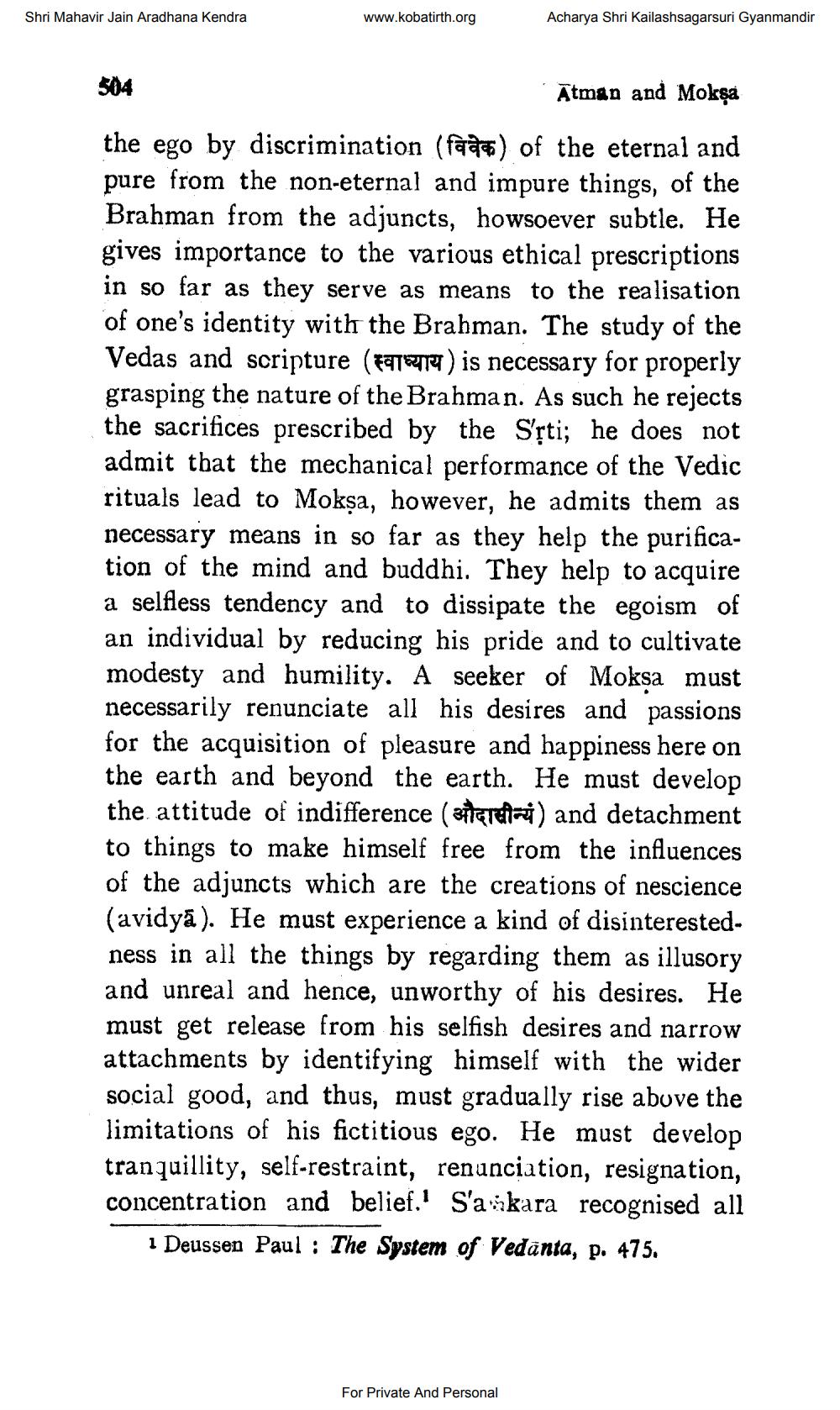________________
Shri Mahavir Jain Aradhana Kendra
www.kobatirth.org
Acharya Shri Kailashsagarsuri Gyanmandir
504
Atman and Mokşa
the ego by discrimination (faq) of the eternal and pure from the non-eternal and impure things, of the Brahman from the adjuncts, howsoever subtle. He gives importance to the various ethical prescriptions in so far as they serve as means to the realisation of one's identity with the Brahman. The study of the Vedas and scripture (FTTT) is necessary for properly grasping the nature of the Brahman. As such he rejects the sacrifices prescribed by the S'rti; he does not admit that the mechanical performance of the Vedic rituals lead to Mokşa, however, he admits them as necessary means in so far as they help the purification of the mind and buddhi. They help to acquire a selfless tendency and to dissipate the egoism of an individual by reducing his pride and to cultivate modesty and humility. A seeker of Moksa must necessarily renunciate all his desires and passions for the acquisition of pleasure and happiness here on the earth and beyond the earth. He must develop the attitude of indifference (sterdini) and detachment to things to make himself free from the influences of the adjuncts which are the creations of nescience (avidyā). He must experience a kind of disinterestedness in all the things by regarding them as illusory and unreal and hence, unworthy of his desires. He must get release from his selfish desires and narrow attachments by identifying himself with the wider social good, and thus, must gradually rise above the limitations of his fictitious ego. He must develop tranquillity, self-restraint, renunciation, resignation, concentration and belief.' Sankara recognised all
1 Deussen Paul : The System of Vedānta, p. 475.
For Private And Personal




